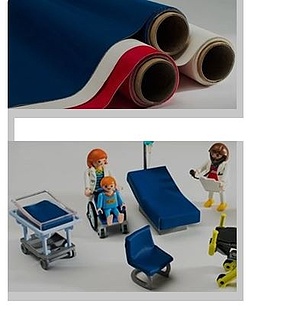The design of healthcare equipment, especially in seating, can have an impact on infection prevention and control in facilities. This article outlines the risks and potential impact of clinical seating.
Health care-associated infections:
Risk factors for infections in hospital:
There are other risk factors that may increase your likelihood of acquiring healthcare acquired infection (HAI). These include:
- Length of stay – a long hospital stay can increase the risk, for example, admission for complex or multiple illnesses.
- Operations and surgical procedures – the length and type of surgery can also have an impact.
- Hand hygiene techniques – inadequate hand hygiene practices by hospital staff and patients may increase your risk.
- Antibiotics – overuse of antibiotics can lead to resistant bacteria, which means that antibiotics become less effective.
- Equipment – invasive procedures can introduce infection into the body, for example, procedures that require the use of equipment such as urinary catheters, IV drips and infusions, respiratory equipment and drain tubes.
- Wounds – wounds, incisions (surgical cuts), burns and ulcers are all prone to infection.
- High-risk areas – some areas of the hospital are more likely to have infection, such as intensive care units (ICU) and high dependency units (HDU).
Five most common health care-associated infections strike 440,000 U.S. patients each year. The new study from Harvard researchers, which was published online Sept. 2 in JAMA Internal Medicine, suggests that by focusing prevention efforts on surgical site infections, infections associated with the use of devices such as central lines, catheters and ventilators, and by guarding against infections caused by Clostridium difficile, hospitals could save substantial amounts of money. According to the study, hospital acquired Infections (HAI) alone are responsible for $28 billion to $33 billion in potentially preventable health care expenditures annually.
- Antimicrobial resistance (AMR) threatens the effective prevention and treatment of an ever-increasing range of infections caused by bacteria, parasites, viruses and fungi.
- AMR is an increasingly serious threat to global public health that requires action across all government sectors and society.
- Without effective antibiotics, the success of major surgery and cancer chemotherapy would be compromised.
- The cost of health care for patients with resistant infections is higher than care for patients with non-resistant infections due to longer duration of illness, additional tests and use of more expensive drugs.
- In 2016, 490 000 people developed multi-drug resistant TB globally, and drug resistance is starting to complicate the fight against HIV and malaria, as well.
 For Seating Matters a patients health is top priority but this can be compromised when the correct seating equipment is not available to give them optimum level of care. This can impact on length of stay, quality of life and financial costs to the family, patient and the care setting and the risk of developing HAI, pressure injuries or having a fall due to inappropriate seating equipment. Seating Matters surfaces from their seating equipment are easily cleaned and will withstand the rigours of hospital cleaning and disinfection.
For Seating Matters a patients health is top priority but this can be compromised when the correct seating equipment is not available to give them optimum level of care. This can impact on length of stay, quality of life and financial costs to the family, patient and the care setting and the risk of developing HAI, pressure injuries or having a fall due to inappropriate seating equipment. Seating Matters surfaces from their seating equipment are easily cleaned and will withstand the rigours of hospital cleaning and disinfection.
The Seating Matters chairs are designed to meet stringent infection control and prevention measures in hospitals and long term care and nursing homes.
The addition of weldable seams acts as a barrier to fluid and contamination. The fabric surface is engineered specifically with pressure care in mind. This not only has a benefit in terms of patient safety but can prolong the life of the quality finished seating equipment.
We have experience in helping facilities prevent infection through clinical seating. Contact Us to Find Out How.
** This post was originally published on http://blog.seatingmatters.com/infection-prevention-and-control


